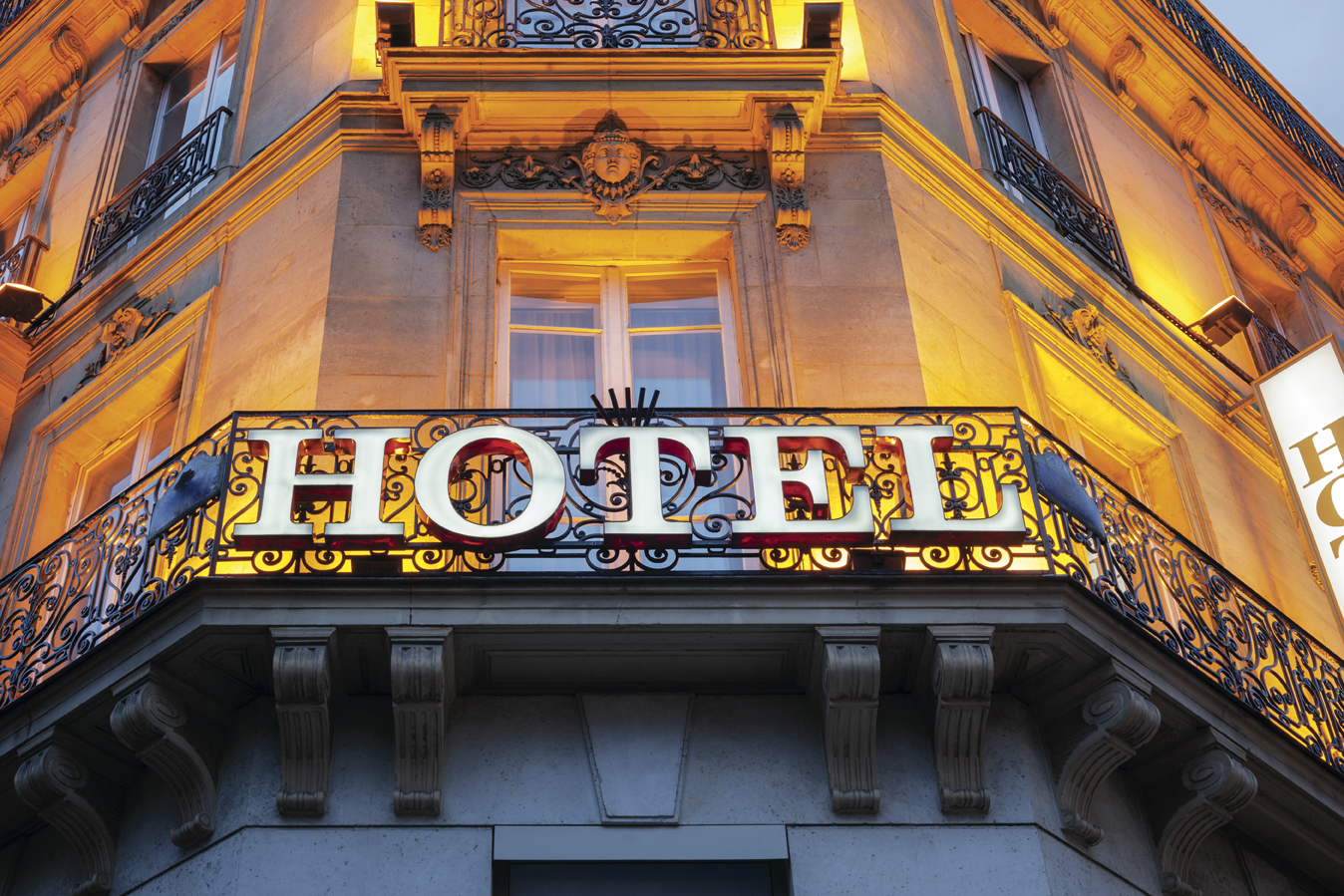Advice to develop your hospitality niche
When I think about hotel and resort risks, I look no further than the Happiness Hotel, the run-down London-based establishment featured in Jim Henson’s The Great Muppet Caper. The Murphy beds spring back up into the wall without warning—the vibration causing the hanging light bulbs to fall and break—a taxicab driver crashes through the front door to drop patrons off in the lobby, and the most common method of payment is to “sneak out in the middle of the night.” Of course, the Happiness Hotel is fictional, although I wouldn’t mind just once having puppet rats carry my luggage. Real ones need not apply. (Shudder).
In today’s soft market in the hotel and resort niche, there are plenty of issues and claims drivers that agents should recognize.
“Slips and falls are always going to be a large percentage of claims from a casualty perspective,” says Kurt Meister, senior vice president and business development manager at Distinguished Specialty. “Laying mats down at doorways and making sure that uneven surfaces are repaired are worth the small investment that it takes to avoid what could be anywhere from a $250,000 to over a $1 million claim.”
“We try to understand the different areas of the hotel, so when we talk about slips and falls, we’re asking that next question about what department is involved or affected,” adds John Welty, SUITELIFE practice leader at Venture Insurance Programs. “Understanding how each of these claims areas can impact the other areas within the hotel is very helpful from our standpoint because then we’re not focusing on a broad category, but we’re narrowing it down to what causes those slips and falls in each of the main areas in the resort.”
“If it’s raining outside and you have a marble floor in the lobby, that’s an area where you see frequency in slips and falls,” says Tom McDonough, senior underwriter at Venture Insurance Programs. “We recommend a runner type of rug to dry people’s feet and a place for umbrella bags so water isn’t dripping off the umbrellas, causing an additional exposure.”
Other exposures arise by chance, like those caused by acts of nature.
“The risk of losses from hurricanes, earthquakes, flooding, fire, and other perils is a constant,” says Richard Haggis, executive general adjuster at Engle Martin & Associates. “Following a catastrophe such as a hurricane, it can take time for the economy to recover, and news coverage and social media can impact that recovery time. Additionally, some destinations will be impacted by damage to local infrastructure.”
“We’re finding that hotels haven’t been moving their casualty limits up in years, and as jury awards become larger, the
potential for a coverage gap becomes greater.”—Kurt Meister
Senior Vice President and
Specialty Sales and
Business Development Manager
Distinguished Specialty
“Due to Hurricane Matthew on the East Coast last October, we’re seeing that wind and flood coverage are becoming more difficult to place, so it’s important to have the program through an administrator or a specialty market that specializes in this industry,” adds Welty. “Also we’ve seen an increase in earthquakes in Oklahoma, possibly due to fracking.”
When natural disasters strike, business interruption is likely to follow.
“We make sure that we’re in tune with our brokers and our clients when it comes to business interruption insurance,” says Welty. “We reach out to ensure we understand what their bank loan requires from an interruption standpoint, to determine whether they need business interruption coverage for 48 months as opposed to 24 months to meet specific bank loan agreements.
“We also talk about the need for ingress/egress insurance. If an event occurs and people are unable to leave the hotel, or if they’re not able to get to the hotel, the facility may lose significant income.”
“Retail agents should consider an extended period of indemnity in the business interruption coverage,” adds Haggis. “Sometimes it takes longer for a property to get back on its feet after an event, and the extended indemnity period provides coverage for the reduction in sales or additional costs incurred. Another coverage to think about is contingent business interruption, which covers loss resulting from the interruption of business due to damage to another business on which the hotel or resort depends financially. For example, a hotel could be impacted by loss at a location such as a football stadium or an amusement park that it depends on for business.”
In the busy marketplace, conflicts can arise during acquisitions or mergers.
“With new growth as well as mergers and acquisitions, an issue we have seen lately arises when a catastrophe affects newly acquired hotels or those in the process of renovation or rebranding,” says Haggis. “There are also challenges in appraising the physical damage loss. For branded hotels, the parent company controls repair protocol and even the interior decorating. This could conflict with the adjuster’s evaluation of damage.”
“We’re seeing independent hotel and boutique owners struggling to find their niche in the marketplace because of consolidation,” says Joe Dolce, executive vice president of Venture Insurance Programs. “Also, some hotel conglomerates have many different brands. Marriott, for example, has 31 distinct brands. When you talk with your clients, you need to identify the specific type of facility.”
Coverages
Hotels and resorts provide not just a bed to rest your head but everything from food and beverages, shuttle service, entertainment, sports, spas, and more. Each of these exposures must be covered with adequate and appropriate insurance.
“Cyber liability is not necessarily a new coverage nor a new threat to the hospitality industry, but the threats and responses are evolving and growing daily,” says Tony Wittwer, president of CITA Insurance Services. “The challenge in today’s competitive hospitality marketplace is that to deliver the high level of stress-free, personalized experience that guests now expect, it is necessary for a hotel to collect, retain, reference, and often share (with service partners) personal information about each traveler—which represents the database targeted by hackers. Hotels need to do a thorough evaluation of the entire scope of their exposures— from both the hotel’s and the guest’s perspective—and then put into place needed safeguards. In addition to cyber’s daily-headline identity theft concern, cyber attacks can also threaten life safety protections by disrupting security controls, emergency communications, alarm systems, elevator/escalator systems, lighting, etc.”
Adds Meister: “We’ve found that very few independently owned hotels are buying cyber liability. The exposure is significant, and from a hotel perspective the cost of identifying and notifying those who were affected is not easy because guests come from everywhere—nationally and internationally. The law about what must be done to notify a customer is based on where the customer is located, not where the hotel is located. For a small investment, cyber liability is a great opportunity for hotels to protect themselves from what is becoming a serious exposure.”
What about the building itself and the valuable contents within?
“The value of a hotel property goes far beyond the bricks and bolts of the structure or the land it sits on,” says Haggis. “Specialty items, fine arts, and historic components all make a property appealing to guests and the general public. But what happens when a guest falls asleep with the bathroom faucet on and the tub overflows and damages a 200-year-old mural?
“Coverages such as historic valuation policies are designed specifically for hotels to protect their historic structures and rare artwork. The policy wording provides the insured some control in the adjustment process as to how the damaged property will be repaired, rebuilt, or replaced based on the value of the original building component or artwork.”
Another exposure hotels must consider is Legionnaires’ disease.
“On the liability side, the Legionnaires’ exposure continues to be an issue,” says Dolce. “It particularly comes up in the summer months wherever you see moisture.”
“Agents should understand how their carriers define fungi and bacteria,” adds Welty. “And how the carrier’s definition does or does not apply to Legionnaires’ is key. It’s important to understand the nuances in the carrier forms and to ensure that you arrange appropriate coverage for each client’s exposure.”
Adds Meister: “Legionella is one of the largest uncovered exposures for hotels and resorts. It has the potential for a very large claim; even if it affects only one person, it can cause serious illness or even death. The majority of standard GL policies specifically exclude coverage for this bacteria exposure.”
“The insurance marketplace offers a number of coverages specific to the hospitality industry, with many focused on guest-associated CGL and property exposures,” says Wittwer. “Another key consideration is sexual abuse/molestation coverage, to respond to risks associated with the hotel’s daycare services, summer/day camps, kids’ clubs, or spas.”
“Sometimes endorsements or separate policies are needed to cover all the exposures associated with a property,” adds Haggis. “There could be exclusions for employee dishonesty, so loss arising from criminal or fraudulent conduct of an employee may need to be insured under a separate crime coverage form.”
Advice for agents
If your agency is considering jumping into the hotel and resort niche, heed this advice.
“Agents and brokers should have a niche within the hospitality industry, whether it’s a resort, a five-star hotel, or a low-budget facility,” says Welty. “They are completely different animals within the hospitality industry, and understanding the markets and who the players are will help an agent better define that opportunity to win or keep an account.
“Understanding how each of these claims areas can impact the other areas within the hotel is very helpful from our standpoint because then we’re not focusing on a broad category, but we’re narrowing it down to what causes those slips and falls in each of the
main areas in the resort.”—John Welty
SUITELIFE Practice Leader
Venture Insurance Programs
“Also, don’t forget to stay in touch with clients. Too often we find that an agent lost an account because he or she only visited the client to deliver the renewal proposal and the policies. The four- and five-star boutiques we write are looking at the guest experience, so they’re always touching the guests. It should be the same way for agents and brokers: You need to be in constant communication.”
“Contact and establish relationships with MGAs and carriers that offer specialty hospitality programs,” says Wittwer. “Focus, familiarity, and insurance marketplace knowledge are the foundation of building a successful hotel/resort niche.”
“Formulate a strategy around geographic and market opportunities and build a strong risk management program,” adds Haggis. “Agents should emphasize loss control and focus on claims to ensure they are handled appropriately.”
“Agents should join associations to stay connected, attend trade shows and conferences, and network in the industry,” says Dolce. “Agents and brokers who are up to date on the industry’s current trends are well-positioned to attract and retain hospitality accounts.”
“Joining regional or state associations is a great way to understand who owns hotels,” adds Meister. “Properties may be owned or managed by a company that’s out of the agent’s territory. Joining an association will give you contacts with local owners or management companies.
“Make sure you’re educating your customers on potential situations that lead to high-dollar losses. The need is probably greater than you think. Agents should make sure that they’re offering higher-limit options; whether or not the client buys the coverage, you’ve protected yourself from an errors and omissions standpoint. We’re finding that hotels haven’t been moving their casualty limits up in years, and as jury awards become larger, the potential for a coverage gap becomes greater.”
By Christopher W. Cook
For more information:
CITA Insurance Services
www.citainsurance.com
Distinguished Specialty
www.distinguished.com
Engle Martin & Associates
www.englemartin.com
Venture Insurance Programs
www.ventureprograms.com






